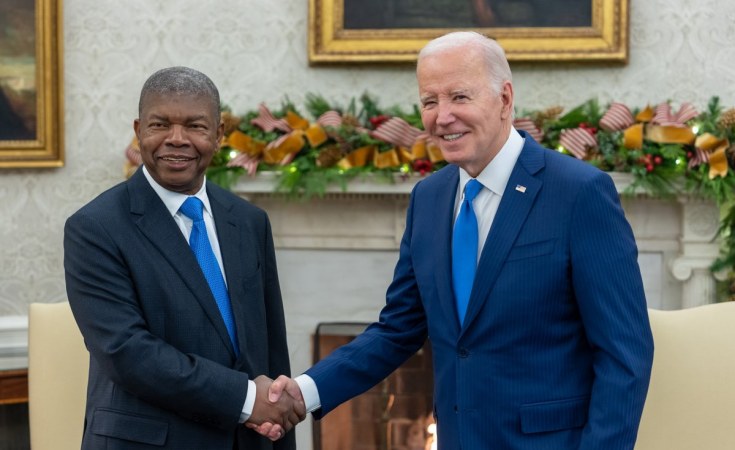Washington, DC — Today, on the margins of the Partnership for Global Infrastructure and Investment (PGII) event at the G20 in India, the United States of America and the European Union welcomed the recent commitment by Angola, Zambia and the Democratic Republic of the Congo to develop the Lobito Corridor connecting southern Democratic Republic of the Congo and northwestern Zambia to regional and global trade markets via the Port of Lobito in Angola.
To accelerate this work in partnership with the three African countries, the European Union and the United States are teaming up to support the development of the Corridor, including by launching feasibility studies for a new greenfield rail line expansion between Zambia and Angola. This represents a powerful evolution of the Partnership element of the Partnership for Global Infrastructure and Investment with a collaborative approach that could be replicated in other strategic corridors around the world.
The U.S.-EU partnership will upgrade critical infrastructure across sub-Saharan Africa to unlock the enormous potential of this region. We are excited to join forces to generate economic benefits with our partners in Angola, the Democratic Republic of the Congo and Zambia.
The partnership will combine financial resources and technical know-how to accelerate the Lobito Corridor development, including investments in digital access and agricultural value chains that will increase regional competitiveness. This announcement shows PGI and Global Gateway at work, bringing partners together to finance multibillion dollar projects that will help create local jobs, decrease the carbon footprint and improve local economies.
As an immediate next step, the United States and the European Union will support the Governments in launching pre-feasibility studies for the construction of the new Zambia-Lobito railway line from eastern Angola through northern Zambia. This builds on the initial U.S.-led support to refurbish the railway section from the Lobito port in Angola to the Democratic Republic of the Congo.
Once transport infrastructure connecting all three countries is fully operational, the Corridor will enhance export possibilities for Zambia, Angola and the Democratic Republic of the Congo, boost the regional circulation of goods, and promote the mobility of citizens. By significantly reducing the average transport time, the new railway will lower the logistics costs and carbon footprint of exporting metals, agricultural goods, and other products, as well as for future development of any mineral discoveries.
The United States and the European Union plan to explore cooperation in three specific areas: i) transport infrastructure investments; ii) measures to facilitate trade, economic development and transit; and iii) support to related sectors to fuel inclusive and sustainable economic growth and capital investment in Angola, Zambia and Democratic Republic of the Congo in the longer term. Specifically, this includes developing clean energy projects to increase the power supply to surrounding communities, supporting diversified investment in critical minerals and clean energy supply chains, extending digital access, growing agriculture value chains to enhance local food production for the region’s expanding population and to address global food insecurity, as well as augmenting local workforce training, support for small and medium enterprises and economic diversification.


